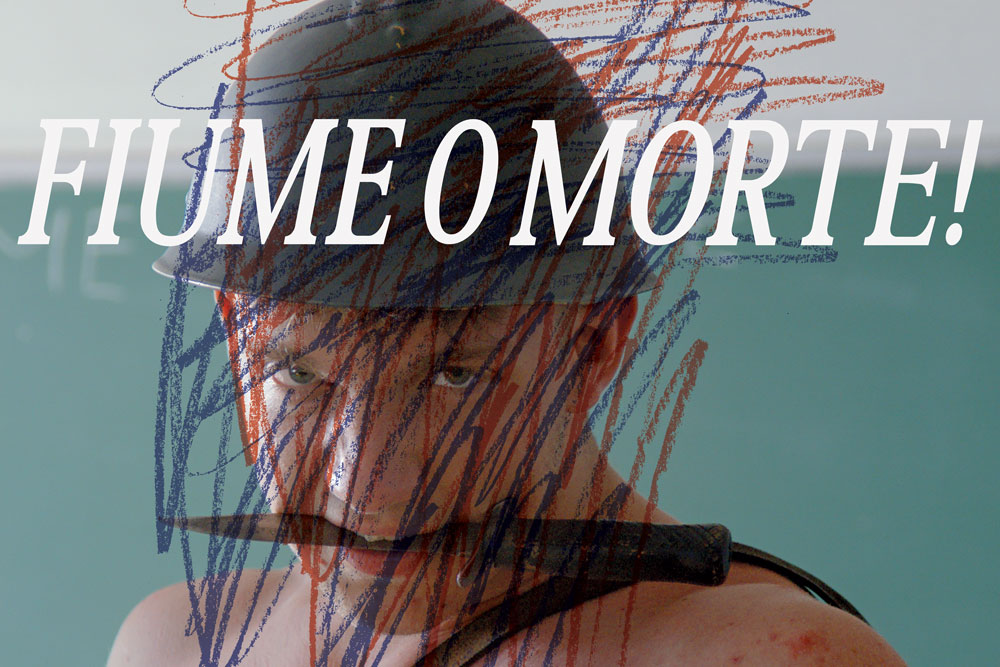
Program
"Salò is going to be a 'cruel' movie, so cruel that I will (I suppose) have to distance myself, pretend I don't believe in it, play with it, in a somewhat creepy way ..."
(Pier Paolo Pasolini)
Salò, the capital of Mussolini's fascist Social Republic, 1944. In a palace on the shore of Lake Garda, four officials organize sadistic orgies, formed by the narration of three storytellers with piano accompaniment, unleashing everything out over nameless boys and girls. In Pasolini's words, "I was not so moved by the memory of the Fascist era, but by the spectacle of modern society and the unprecedented violence that is perpetrated on the body today." Salò deals with double oppression: on the one hand, physical violence (fascism and the Republic of Salò), and on the other, violence carried out over the minds of individuals who live in a capitalist society and are subordinated to bourgeois values. Commodification extends to the last hopes of resistance and freedom (body, sexuality, language). Pasolini's unexplained violent death (three weeks before the movie premieres) haunts his cinematic will, which is also one of the most controversial films of the 20th century.
"There is no need to confuse ideology with a message, nor a message with meaning. In its logical part, the message belongs to ideology, and in that irrational sense. The logical message is almost always evil, lying, hypocritical, even when quite honest. Who could doubt my honesty when I say that the message of Salò is a condemnation of the anarchy of power and the absence of history? Yet, expressed in this way, the message is evil, false, hypocritical in the sense of the same logic by which power is not at all anarchic and which is persuaded by the existence of history. The part of the message that belongs to the meaning of the film is infinitely more real because it also includes what the author does not know, that is, the infinity of his own social and historical limitations. But such a message cannot be conveyed. It can only be left to silence and text. What, then, is the meaning of an act? That's his form. Therefore, the message is formalistic, and that is why it is infinitely richer in all possible content, provided that, in terms of structure, it is sufficiently connected. "(Pier Paolo Pasolini)
featured
Salò, or the 120 Days of Sodom
Salò o le 120 giornate di Sodoma, Italy / France, 1975., director: Pier Paolo Pasolini, feature film
9/64 O Christmas Tree
9/64 O Tannenbaum, Austria, 1964., director: Kurt Kren, feature film
featured
Film Mutations: Festival of Invisible Cinema XIII.
Cinemaclash! Film+Power
Film Mutations: Festival of Invisible Cinema XIII. subtitled Cinemaclash! Film+Power is being held in Art-kino → more
06.-09.02.2020.
Film Is More Than Film
Film ist mehr als Film, Austria, 1996., director: Gustav Deutsch, feature film
Border
Border, France / United Kingdom, 2004., director: Laura Waddington, documentary
Pasolini's Anger. Hypotheses for the Reconstruction of the Original Version of the Film
La rabbia di Pasolini. Ipotesi di ricostruzione della versione originale del film, Italy, 1963.-2008., director: Pier Paolo Pasolini, Giuseppe Bertolucci, documentary
6/64: Mom and Dad (An Otto Mühl Happening)
6/64 Mama und Papa (Materialaktion Otto Mühl), Austria, 1964., director: Kurt Kren, eksperimentalni
Film or Power
Film oder Macht, West Germany, 1970., director: Vlado Kristl, feature film
7/64: Leda and the Swan
7/64 Leda und der Schwan, Austria, 1964., director: Kurt Kren, feature film
Liberty
Liberté, France / Portugal / Spain / Germany, 2019., director: Albert Serra, feature film
Actors: Submission and Pleasure: Opening of the Festival
Actors: Submission and Pleasure,
Cinema Conversation
Cinema Conversation,
Film is. 1-6
Film ist. 1-6, director: Gustav Deutsch,
In the Name of the Law
Enligt lag, Sweden, 1958., director: Peter Weiss, Hans Nordenström, documentary
12th December
12 dicembre, Italy, 1972., director: Giovanni Bonfanti, Pier Paolo Pasolini, documentary
Power and Rebellion
Albert Serra - Selection of films,
Tommaso
Italy / United Kingdom / United States / Greece, 2019., director: Abel Ferrara, feature film
Symposium - Power of Cinemaclash
Symposium - Power of Cinemaclash,
Women's Quarter
Qaleh, Iran, 1966., director: Kamran Shirdel, documentary
Tehran Is the Capital of Iran
Teheran, Payetakht-e Iran Ast, Iran, 1966., director: Kamran Shirdel, documentary
The House is Black
Khaneh siah ast, Iran, 1963., director: Forugh Farrokhzad, documentary
The Incomparable of The Non-comparable
Lo incomparable de lo no comparable, France, 2019., director: Paul Grivas, feature film
Jean-Luc Godard: Initiation into the revolutionary film
Initiation au cinéma [révolutionnaire], France, 1969., director: Jean-Paul Török, documentary
1968: A Blind Archive
1968: A Blind Archive, Mexico, 2014., director: Bani Khoshnoudi, documentary
Visual Riots
Visual Riots,
Socialism
Film Socialisme, Switzerland / France, 2010., director: Jean-Luc Godard, feature film
Film Catastrophe
Film Catastrophe, France, 2018., director: Paul Grivas, documentary
Film/Speaks/Many/Languages
Film/Spricht/Viele/Sprachen, Austria, 1995., director: Gustav Deutsch, documentary
The Hills of Marlik
Tappeha-ye Marlik, Iran, 1963., director: Ebrahim Golestan, documentary
Brick and Mirror
Khesht o ayeneh, Iran, 1965., director: Ebrahim Golestan, feature film
El Grito
El Grito, Mexico, 1968.-1970., director: Leobardo López Aretche, documentary
Visual Riots
Nicole Brenez,
9/64 O Christmas Tree
9/64 O Tannenbaum, Austria, 1964., director: Kurt Kren, feature film











































